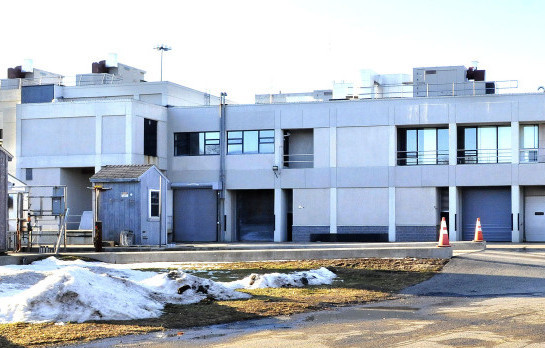WATERVILLE — A plan that will allow the Kennebec Sanitary Treatment District to pay for improvements at its sewage plant in the city’s South End using money from ratepayers has been signed into law by Gov. Paul LePage.
The move will help the district fund future maintenance at the aging plant while not increasing costs as much as long-term loans would, officials said Wednesday.
LePage signed the law last Thursday that allows the district to operate a capital reserve of up to $2 million to fund improvements and updates to its infrastructure and treatment equipment. Because the district is governed by a charter through the Legislature, any amendments need legislative approval.
The plant treats sewage from Fairfield, Benton, Winslow and Waterville as well as Oakland, a Waterville client, and the Huhtamaki paper product factory. It also services Colby, Thomas and Kennebec Valley Community colleges.
In an interview Wednesday, District Superintendent Tim LeVasseur said the district staff has been able to keep the plant working through routine annual maintenance, but it needs significant updates to keep working under its wastewater discharge license.
“We have taken care of this old plant and kept it fairly healthy,” LeVasseur said. “Because we have kept the plant in good shape, a huge opportunity has appeared.”
The plant was built in 1976 with a $6 million bond that supplemented federal funding provided through the Clean Water Act.
The plant is permitted to treat up to 12.7 million gallons a day, but averages about half that, LeVasseur said. It also takes septic tank sludge from member communities and waste from other customers. The district budgets about $485,000 a year to pay down a 20-year $6.6 million bond it took on in 1998 to fund a major upgrade and construction project at the plant. When that bond expires in 2018, the district will be largely debt-free but still in need of serious updates and repairs that could require as much as $10 million to $12 million in new long-term borrowing, LeVasseur said.
Instead, LeVasseur and the district board of trustees opted to look into establishing an internal capital reserve to fund annual improvements. Under the new law, the district can budget up to $500,000 a year, slightly more than it is now paying in debt service, to fund the reserve account. The account has a cap of $2 million.
Through the plan, the district believes it can flat-line the budget and possibly decrease expenditures in the near future, LeVasseur said.
The district’s four member communities signed on to the proposal in a resolution last June, according to LeVasseur. The improvement plan comes at the same time revitalization and new development in the Waterville area could lead to more demands on the system, he added.
To guide the capital fund, LeVasseur established a 15-year asset management plan that outlines equipment, buildings and infrastructure that need to be replaced. Some of the equipment is from when the plant was built 40 years ago, and many of the items are listed in poor condition. That doesn’t mean the plant is close to failure, but that those items are in bad enough shape to need replacement, LeVasseur said.
In the plan, some years include multiple small projects, but the district also can build up its reserve to fund large improvements, such as a new dewatering system that will cost more than $1 million and be needed in the next six years, LeVasseur said.
Yearly projects will need approval from trustees, and scheduled plans can be changed depending on different circumstances.
“It provides the district with its own stability and protects the members from rate increases due to new bonds for capital improvement projects in the future,” said board of trustees Treasurer Nick Champaigne, who represents Waterville on the board.
“I think a lot of folks are leery of these funds because there are some agencies where it is uncapped and it creates an issue where people are wondering why all that money is being saved up and not being spent,” Champagne said. “The asset management plan is intended to have the board take a look at it every year and determine what needs to be done.”
Peter McGuire — 861-9239
Send questions/comments to the editors.




Success. Please wait for the page to reload. If the page does not reload within 5 seconds, please refresh the page.
Enter your email and password to access comments.
Hi, to comment on stories you must . This profile is in addition to your subscription and website login.
Already have a commenting profile? .
Invalid username/password.
Please check your email to confirm and complete your registration.
Only subscribers are eligible to post comments. Please subscribe or login first for digital access. Here’s why.
Use the form below to reset your password. When you've submitted your account email, we will send an email with a reset code.